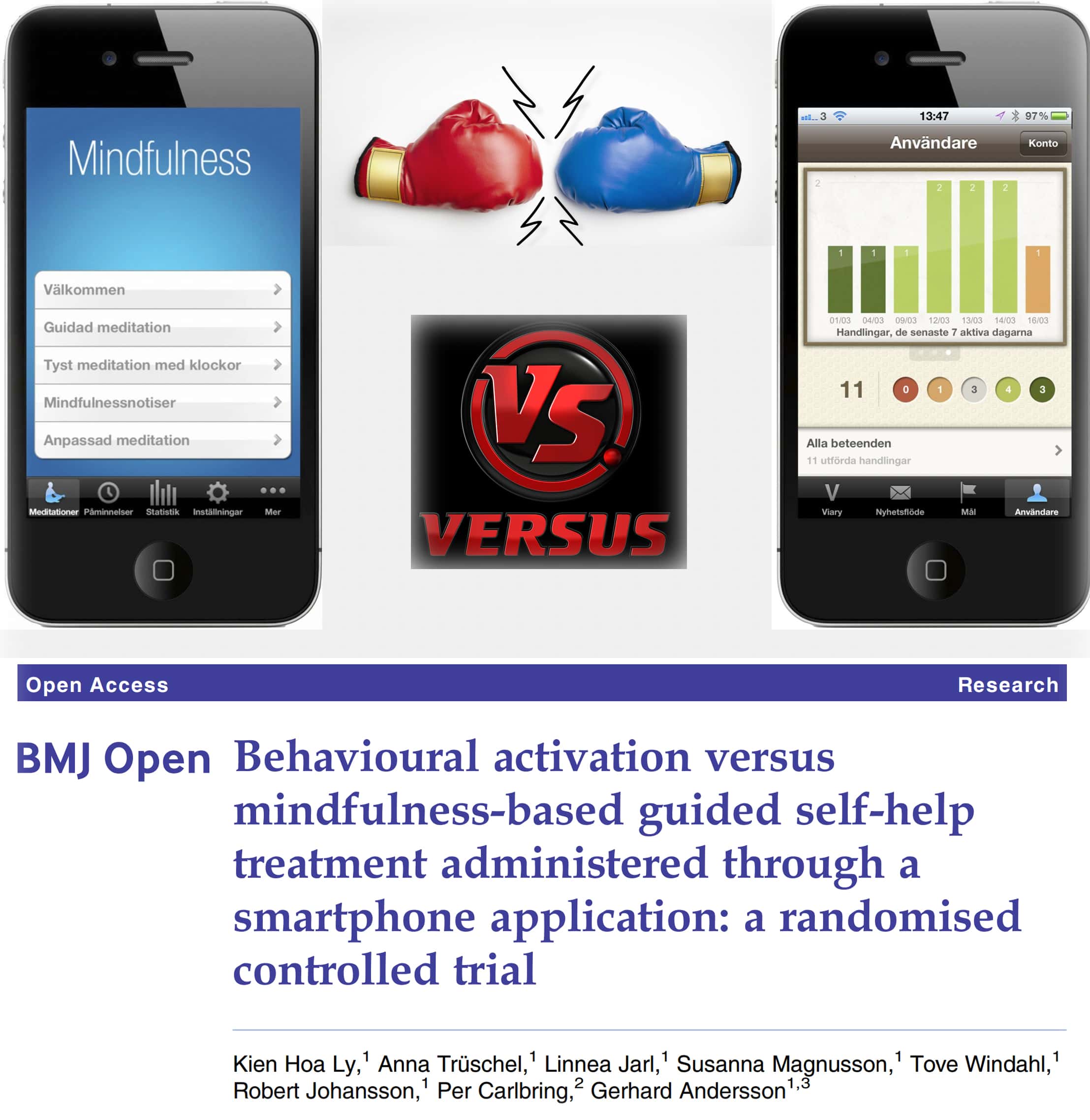Today we published a new research paper in BMJ Open where we evaluated and compared the effectiveness of two smartphone-delivered treatments: one based on behavioural activation (BA) and other on mindfulness.
Design
Parallel randomised controlled, open, trial. Participants were allocated using an online randomisation tool, handled by an independent person who was separate from the staff conducting the study.
Setting
General community, with recruitment nationally through mass media and advertisements.
Participants
40 participants diagnosed with major depressive disorder received a BA treatment, and 41 participants received a mindfulness treatment. 9 participants were lost at the post-treatment.
Intervention BA: An 8-week long behaviour programme administered via a smartphone application.
Mindfulness: An 8-week long mindfulness programme, administered via a smartphone application.
Main outcome measures: The Beck Depression Inventory-II (BDI-II) and the nine-item Patient Health Questionnaire Depression Scale (PHQ-9).
Results
81 participants were randomised (mean age 36.0 years (SD=10.8)) and analysed. Results showed no significant interaction effects of group and time on any of the outcome measures either from pretreatment to post-treatment or from pretreatment to the 6-month follow-up. Subgroup analyses showed that the BA treatment was more effective than the mindfulness treatment among participants with higher initial severity of depression from pretreatment to the 6-month follow-up (PHQ-9: F (1, 362.1)=5.2, p<0.05). In contrast, the mindfulness treatment worked better than the BA treatment among participants with lower initial severity from pretreatment to the 6-month follow-up (PHQ-9: F (1, 69.3)=7.7, p<0.01); BDI-II: (F(1, 53.60)=6.25, p<0.05).
Conclusions
The two interventions did not differ significantly from one another. For participants with higher severity of depression, the treatment based on BA was superior to the treatment based on mindfulness. For participants with lower initial severity, the treatment based on mindfulness worked significantly better than the treatment based on BA.
Since the paper is published with open access it is availalbe for free for everyone (see reference).
Reference:
Ly, K. H., Trüschel, A., Jarl, L., Magnusson, S., Windahl, T., Johansson, R., Carlbring, P., & Andersson, G. (2014). Behavioral activation vs. Mindfulness-based guided self-help treatment administered through a smartphone application: a randomized controlled trial. BMJ Open, 4, e003440
